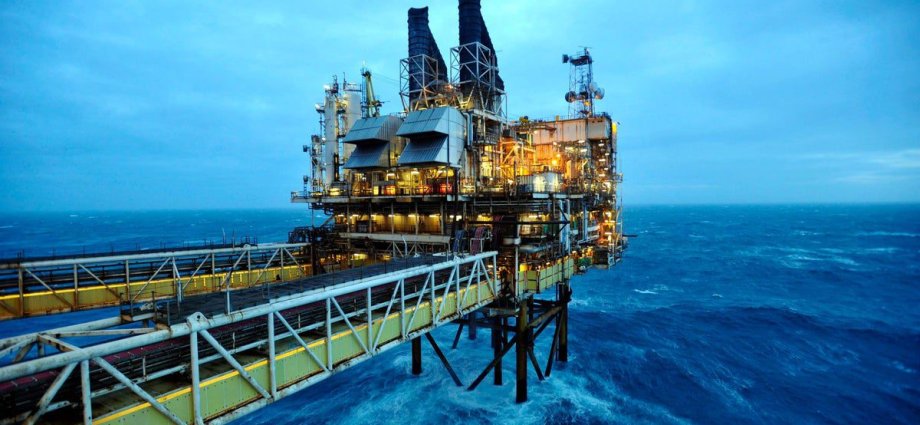MB union general secretary Gary Smith said Labour’s policies “are going to create a cliff edge with oil and gas extraction from the North Sea”.
Speaking on Sky News on Sunday morning after shadow business secretary Jonathan Reynolds defended plans to ban oil and gas production, Mr Smith described Labour as “naive”.
He called on the party to stop putting what was “popular” ahead of what was right for the country and said that workers in the industry were “very worried” about the plans.
The proposals, confirmed by Labour leader Sir Keir Starmer last week, would ban new licences for oil and gas extraction in the North Sea but still allow existing projects to continue until 2050 as part of the party’s push towards a green energy transition.
Speaking ahead of the GMB annual congress in Brighton on Sunday, the general secretary told Sky’s Sophy Ridge: “Their policies are going to create a cliff edge with oil and gas extraction from the North Sea.
“There is a lot of oil and gas in the North Sea and the alternatives facing the country are that we either produce our own oil and gas – take responsibility for our carbon emissions – or we are going to import more oil and gas.
“I think workers in the petrochemical industry … are going to be very worried about what Labour are saying and I think it is time for Labour to focus on the right thing rather than what they think is the popular thing.”
The big opportunity comes from the transition and we don’t think further new oil and gas fields are the answer
He said that the sector had been promised “tens of thousands of jobs” in renewable energy “time and time again” but that they “simply have not emerged”, adding: “That has been the sorry state of the renewables industry around the country.”
Mr Reynolds stood by the plans, telling BBC’s Laura Kuenssberg that energy extraction in the North Sea would continue until 2050, protecting the 28,000 workers in the sector.
“But the big opportunity comes from the transition and we don’t think further new oil and gas fields are the answer,” he added.
“First of all because they won’t do anything for bills, they won’t do anything for our energy security, they cost a lot of public subsidy, they clearly will be a climate disaster, but also there are better alternatives available.”
The shadow business secretary said there is a need to be “embracing that change”, which includes renewables and green steel, adding: “The number of jobs that will be created by that is far in excess of the jobs currently there.”











